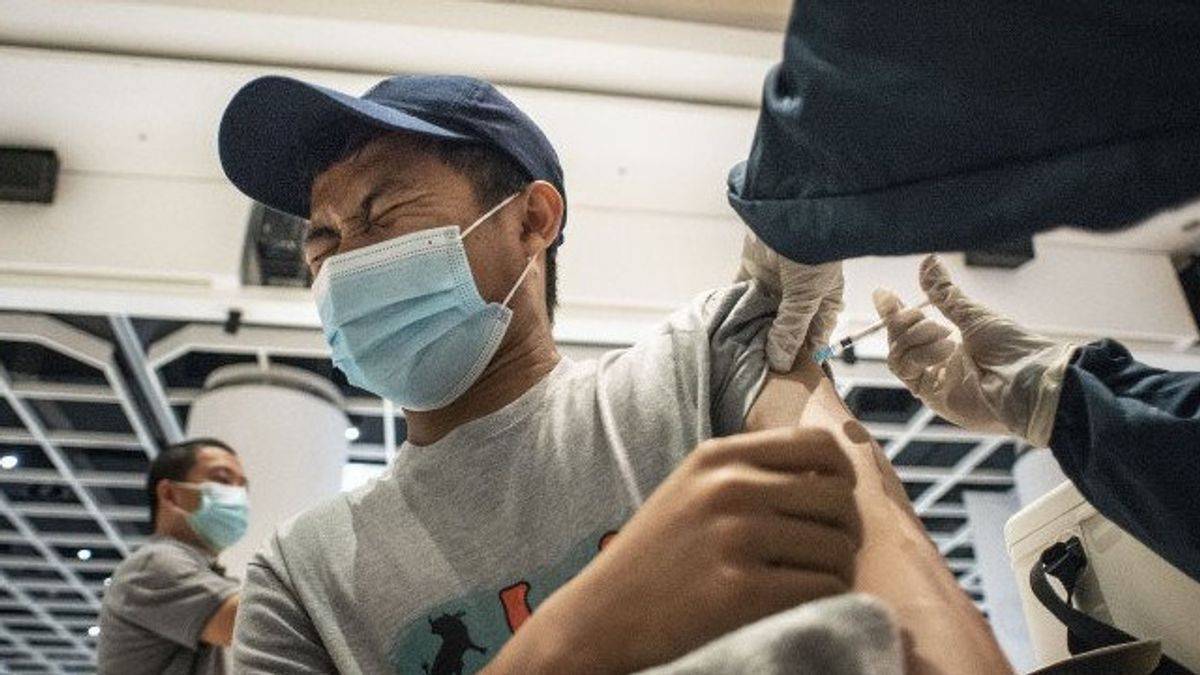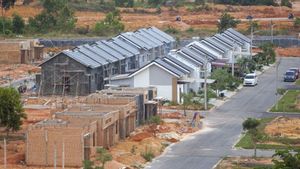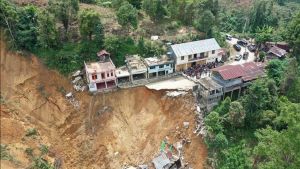JAKARTA - The government is testing the opening of malls and shopping centers in several places with strict procedures. Only people who have been vaccinated can enter. In DKI, Governor Anies Baswedan has already implemented a similar policy. Not only malls, he also requires a certificate of vaccination for all types of activities. But unfortunately, the dichotomy of people who are vaccinated and not vaccinated is not considered effective enough in maintaining public health.
Deputy Chairman of the Committee for Handling COVID-19 and National Economic Recovery Luhut Binsar Pandjaitan said the government would conduct trials of gradual opening for malls, shopping centers in the PPKM Level 4 area. (regions) level 4 by paying attention to the implementation of health protocols," said Luhut at a press conference, Monday, August 9.
Furthermore, Luhut explained, trials of opening shopping centers and malls will be carried out in Jakarta, Bandung, Semarang and Surabaya with a visitor capacity of 25 percent. Meanwhile, residents who may enter the mall must have been vaccinated and must not be under 12 years old and parents over 70 years old.
In Jakarta, Governor Anies Baswedan has implemented the mandatory regulation of having the vaccine first. In fact, this policy does not only apply to malls. Almost all activities, including barbershops, restaurants, and others, must carry out vaccine checks on their visitors.

Marty Makary, a professor from Johns Hopkins University School of Medicine, United States, argues that requiring vaccines for everyone, both young and old, does not have strong scientific support. According to him, the basis for the emergence of mandatory vaccination because the risk of death from COVID-19 occurs evenly within a population is a wrong assumption.
We believe vaccines are good for reducing infections and even protecting patients from dying from COVID-19. Vaccines can reduce the infection rate of a pandemic disease to mild seasonal viral levels.
The vaccine policy for all health workers still makes sense. Because after all they are people who, or have the potential, are in close contact with COVID-19 patients. So that vaccination will really help them to be protected from exposure to disease.
As for those who choose not to be vaccinated, it may be said that they have taken a risky life. But Makary said, that doesn't mean they can pose a public health threat to those already immune to the virus.
"The idea that we should vaccinate every living thing to control a pandemic is based on the erroneous assumption that the risk of death from COVID-19 is evenly distributed in the population. This is not the case," Makary wrote in USNews.
Makary said, it is very difficult for the virus to infect someone who is young and healthy. "And it still happens today."

In addition, another reason why the mandatory vaccine policy for everyone is deemed unnecessary is because we cannot rule out the existence of "natural immunity", the immunity that comes after being exposed to COVID-19 infection. According to Makary, in nearly two years of the pandemic, he observed that patients who had been infected had effective and strong natural immunity.
"With natural immunity, the body develops antibodies to the entire surface of the virus. It's not just the spike protein made from vaccines," Makary said.
The power of natural immunity was also recently validated in an Israeli study. Data presented to the Israeli Ministry of Health showed that recovered COVID-19 patients were much less likely to be infected during the wave of the pandemic than people who were vaccinated.
In May, there were 7,700 new cases recorded in Israel. More than 3,000 people who have been vaccinated are infected in the latest wave.
While the number of people who are infected again from people who have been infected is smaller. So that the comparison appears, natural immunity immunity is 6.72 times stronger than the immunity formed after vaccination.
On that basis, Doctor Makary considered that requiring vaccines for people who already have natural immunity "does not have scientific support." He considered the argument about the benefits of vaccines that can increase immunity longevity does not have clinical outcome data to support it. A study from the Cleveland Clinic revealed that vaccinating people with natural immunity did not increase their level of protection.
"So instead of talking about people who are vaccinated against those who are not, we should talk about those who are immune and those who are not," Makary wrote.
Makary said immunity is something that people can test with a simple antibody test. According to him, the vaccine certificate must record whether a person has natural immunity or not.
"I'm not recommending that someone intentionally acquires COVID-19 infection in order to acquire natural immunity, but proof of vaccination documents should record it," Makary said.
The risk of a two-dose vaccineIn addition to natural immunity, Makary also criticizes the two-dose vaccine for children. He said maybe the standard two doses of the vaccine were too high and triggered a strong inflammatory response.
"A single dose of the vaccine may be very effective in children 12 to 15 years of age, as reported by Tel Aviv University. For now, until we have better data, I recommend a single dose for healthy children who have never had the disease. COVID-19 in the past," Makary wrote.
He explained the two-dose vaccination did not have a complete clinical trial to run. So there is concern that the level of potential complications of the second dose of vaccine on some young people is not fully known.
Professor Makary also mentioned the deaths of Simone Scott (19) and Jacob Clynick (13). Both died shortly after getting a second dose of vaccine and developing heart inflammation.
"There have been another 19 deaths in youth under the age of 25, according to the CDC. Because clinical trials aren't powerful enough to detect a rare event like this, I wanted to know more about these deaths before making a comprehensive recommendation," Makary said. Then what about in Indonesia?
News of death after getting vaccines has surfaced several times. At least Kontan noted that three people died after being injected with the AstraZeneca COVID-19 vaccine.
One of them is Trio, a 22-year-old youth from Jakarta. After being vaccinated, he felt the side effects of vaccination in the form of dizziness and fever.
He refused to be taken to the hospital when his temperature was 39 Celsius. Then, the next day his condition weakened and died at the clinic.
However, Head of the National Commission for Post-Immunization Adverse Events (Komnas KIPI) Hindra Irawan Safari said the three cases were not the direct result of the AstraZeneca vaccine. Due to limited data, Hindra said it was difficult to say it was related to immunization.
"Incidentally there was a doctor and saw, and the diagnosis was death on arrivial. So it was difficult to determine the cause of death, because there was no data, never checked with a doctor, came dead, said Hindra in a hearing meeting with Commission IX of the DPR which was broadcast on the DPR's YouTube channel. RI, 20 May.
*Read other information about Vaccines or other interesting articles from Ramdan Febrian Arifin.
Other BERNASThe English, Chinese, Japanese, Arabic, and French versions are automatically generated by the AI. So there may still be inaccuracies in translating, please always see Indonesian as our main language. (system supported by DigitalSiber.id)













